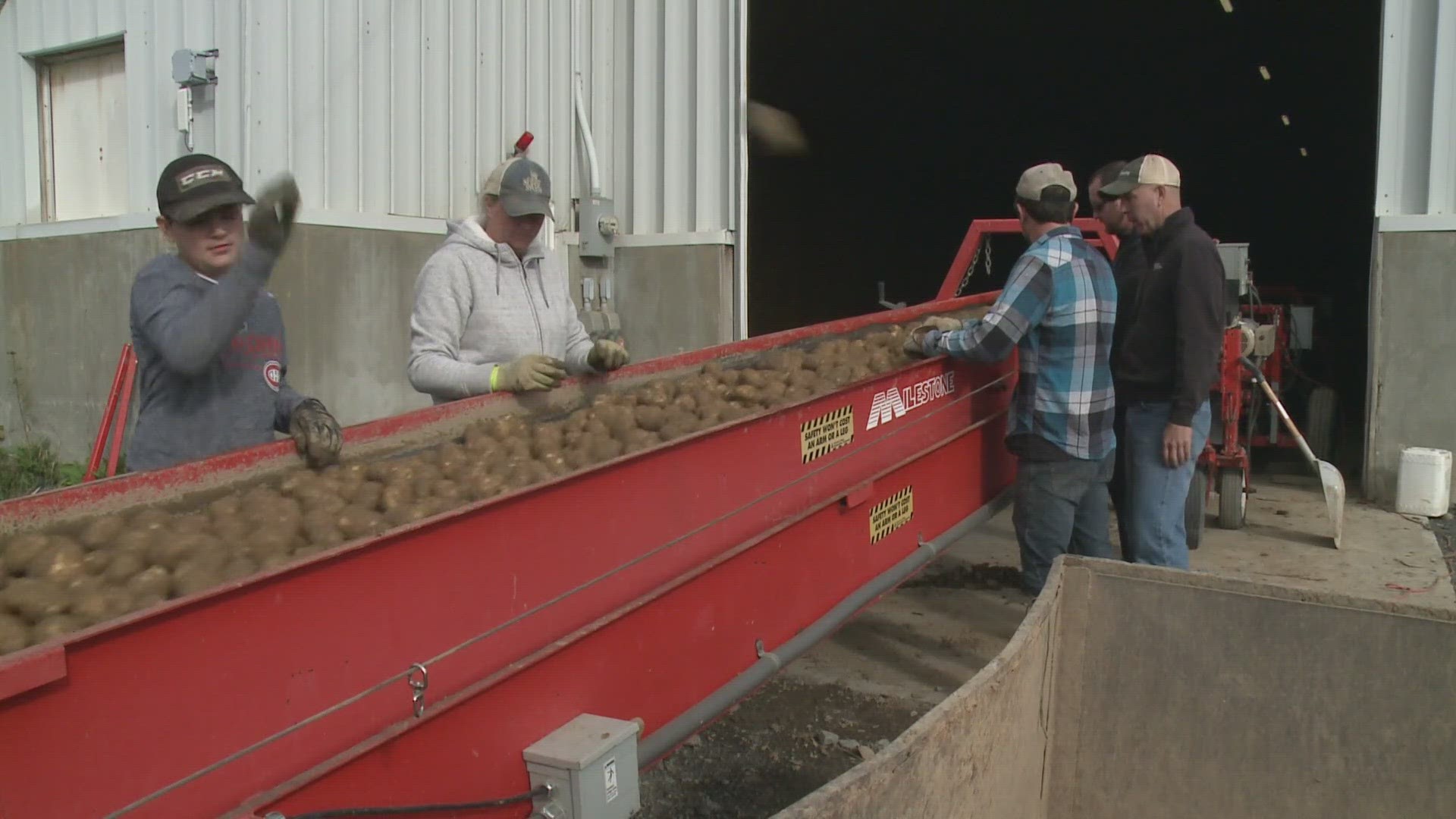AUGUSTA, Maine — A bill to pay farm workers in Maine a $13.80 per hour minimum wage was vetoed by Democratic Gov. Janet Mills on Wednesday, who says she supports the concept but had questions about the bill’s language.
Lawmakers will get an opportunity to override the veto next week.
House Speaker Rachel Talbot Ross sponsored the bill, which would cover farmworkers under Maine’s annually indexed minimum wage. But the bill was amended to entitling them to overtime pay as well. The governor, in her veto letter, said changes made didn't alleviate her concerns about the “scope of the language.”
Talbot Ross accused the governor of “using the power of her office to maintain inequality amongst Mainers.”
"In its amended version, this legislation simply would have ensured that farmworkers are paid the same state minimum wage that every single other worker in Maine is paid. It would have recognized that the people who perform the backbreaking labor entailed by harvesting our food should be paid at least as much as the people who serve us a coffee," she said.
Heather Spalding is the deputy director of the Maine Organic Famers and Gardeners Association, or MOFGA, and said she helped negotiate the bill's language. She felt the negotiators had worked hard to simplify the bill, and felt astounded when she learned of the veto, on the final day Mills had available to do so.
"It just made no sense because she said she supported minimum wage for farmworkers, but she said it was just too confusing," Spalding told NEWS CENTER Maine on Thursday. "And yet, it was all accommodations that were made at her request and at the request of opponents."
While MOFGA and some farmers told us they were frustrated over the veto, the Maine Department of Agriculture, Conservation, and Forestry said others—including the Maine Farm Bureau, Wild Blueberry Commission, and Potato Board—were among those who raised concerns over the bill.
Mills said she intends to issue an executive order to formally reestablish a stakeholder group "to allow for a longer and more in-depth analysis" of the bill with the goal of arriving at "a shared understanding of how to implement a minimum wage bill for farmworkers."
She said she’ll present her own bill next year based on the conclusions.

